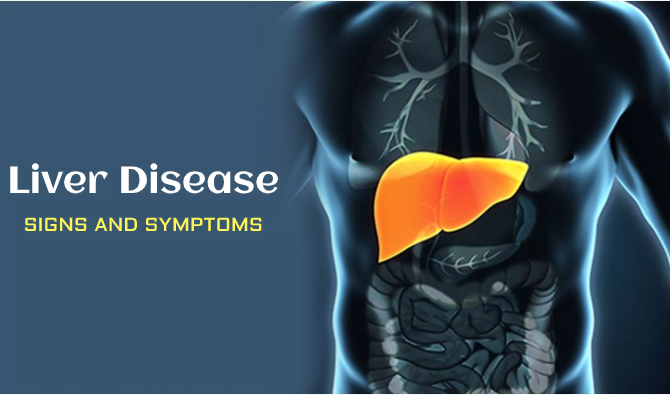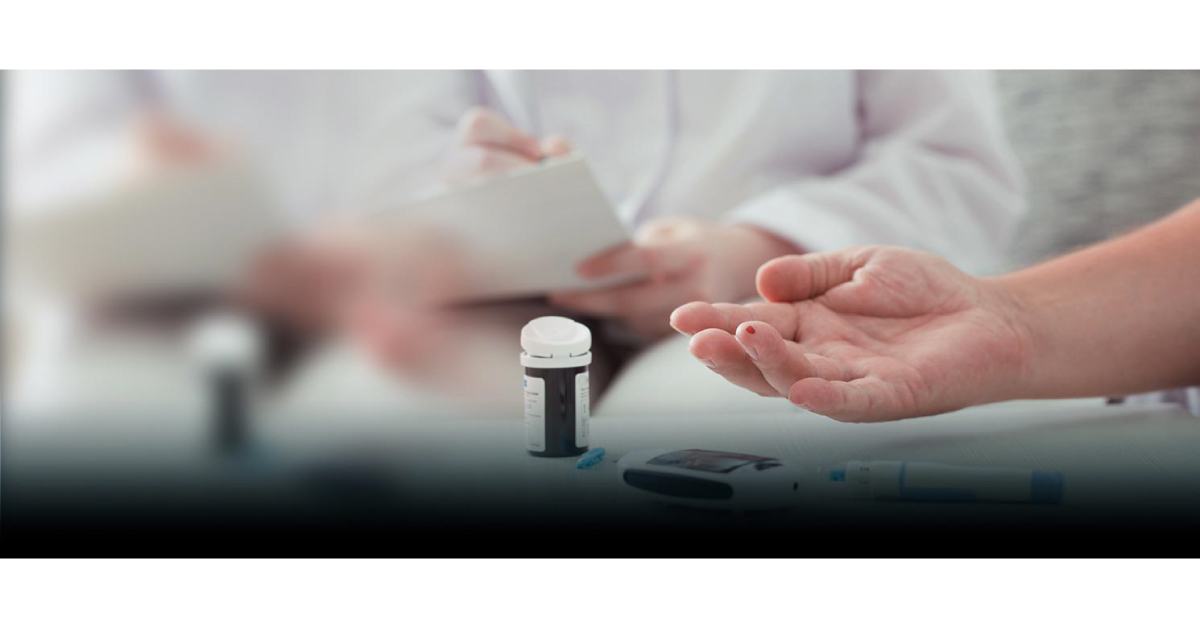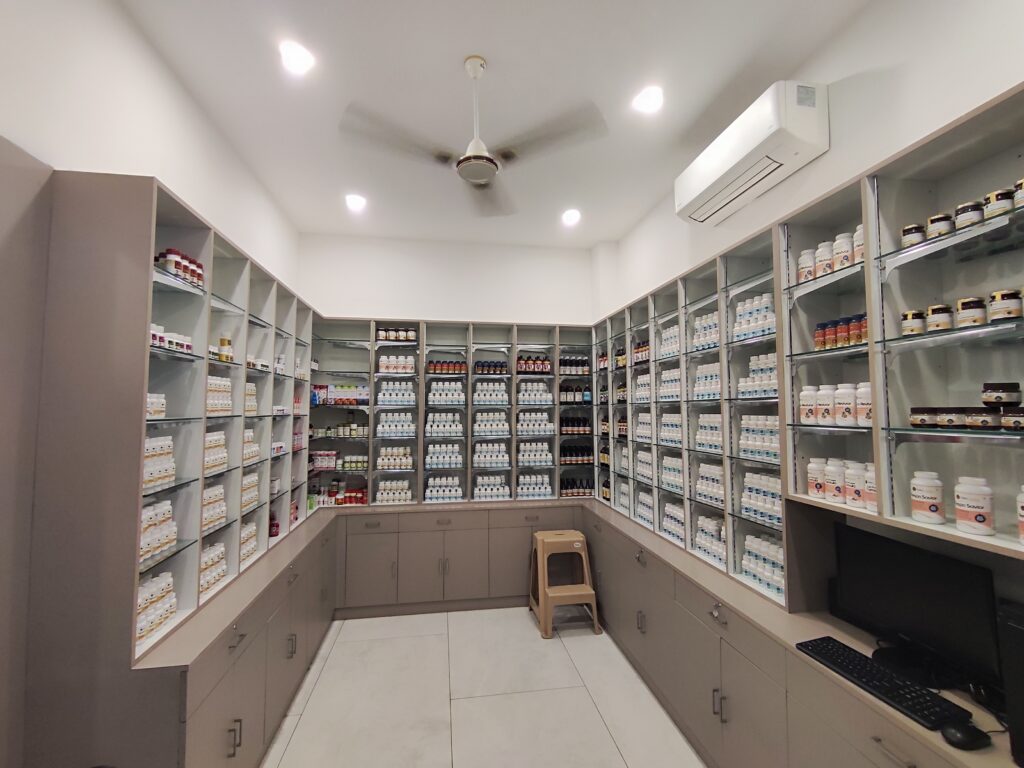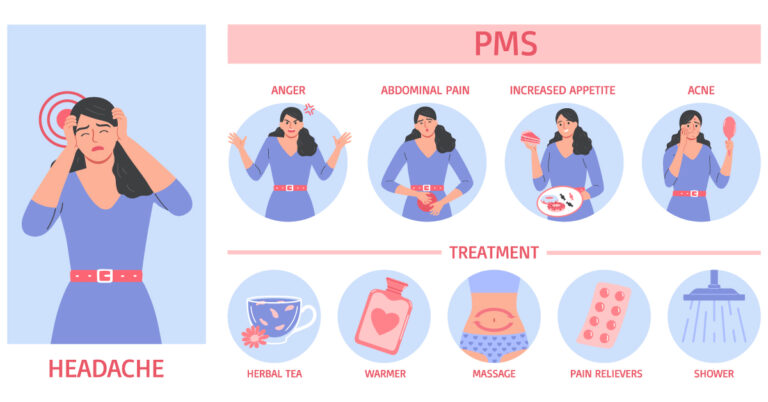Introduction
Premenstrual Syndrome is a group of various symptoms, which are linked to the menstrual cycle. The term “premenstrual syndrome” was first mentioned by Green and Dalton in 1953 in British Medical Journal. It is a very distressing syndrome as it involves various psychological, behavioral, emotional, and physical symptoms. Usually, Premenstrual Syndrome starts every month near ovulation and ends with menstrual flow. It is a medical mystery till now and is considered a psycho neuroendocrine disorder with unknown etiology, without any specific diagnosis and treatment. In Ayurveda, PMS is co-related with Rituvyateetkaal, which is compared with the luteal phase. In Rituvyateetkaal, there is Vaat Sanchya Awastha – aggregation of Vata mainly Vyana Vayu and Pitta Parkop Awastha – outbreak of Pitta, which results in Pitta Aavrit, enveloped with Vyan Vayu and various symptoms like Sarvang Daha (hot flushes), Gatra Vikshepa Sang (catamenial epilepsy), etc. Ayurvedic line of treatment helps to provide relief from the deleterious effects of PMS.
Lesser known facts about PMS
-
- PMS interferes with the daily life of women and is also known as a Premenstrual Dysphoric Disorder.
- Approximately 90% of women experience PMS symptoms at some point of their life, with 20-30% women experience symptoms with high intensity.
- Approximate 200 symptoms are associated with premenstrual syndrome.
- Insomnia is linked with PMS due to a rise in progesterone.
- Smoking also contributes to PMS.
- TSS (Toxic Shock Syndrome) is not related to PMS. It is related to the use of superabsorbent tampons in the vagina for more than 8 hours.
- Calcium supplements reduce the effect of PMS.
- It is a great myth that PMS is not real.
Premenstrual Syndrome Causes
Ayurvedic point of view
- Virudh Ahara (incompatible food)
- Adharniya Vega Dharna (suppression of natural urges)
- Atti-Bhojan (intake of excessive food)
- Ratri Jagaran (staying awake at night)
- Diva Swapan (sleeping during the day)
- Intake of Amla (dour), Katu (pungent), Lavana (salty) food
- Ushan Aahara, Vihara (excessive consumption of hot food and water)
Modern point of view
- Serotonin deficiency: Serotonin serves various functions in our brain like sensitivity to pain, mood, etc. During the premenstrual phase, a low level of serotonin and lower uptake of serotonin by platelets leads to various symptoms of PMS.
- Prostaglandin: Research has revealed that during the premenstrual phase, prostaglandin produces in areas like the breast, abdomen, urinary tract, reproductive tract, etc. Prostaglandin is the culprit behind inflammation and causes symptoms like breast tenderness, cramping, diarrhea, etc.
- Nutritional cause: Calcium and magnesium supplements relieve the symptoms of PMS. Therefore, it is believed that a diet that is deficient in nutrition leads to many PMS symptoms.
- Low endorphin level: Endorphin is the hormone that leads to good mood or feeling of happiness. During luteal phase, this endorphin hormone level drops which results in PMS symptoms.
- Smoking: Women who smoke are more likely to have PMS symptoms than women who don’t.
- Obesity: People with BMI over 30 are also more prone to PMS symptoms.
- Low level of Vit. B6
- Frequent intake of junk food, spicy food, coffee
There is ongoing research on the impact of GABA (gamma-aminobutyric acid) system and hyperprolactinemia on PMS.
Premenstrual Syndrome Symptoms
Ayurvedic point of view
- Kalam (exhaustion even without any work)
- Sarvang Daha (hot flushes)
- Gatra Vikshepa Sang (catamenial epilepsy)
- Santapa-Deha (raised temperature of the body)
- Indriya Manas (mood disorder like anxiety, emotional)
- Vedana (generalized aches, pain in breast, cramps in the abdomen)
Modern point of view
- Psychological symptoms: Depressed mood, crying, tension, mood swings, anxiety, confusion, decreased self-esteem, forgetfulness, etc.
- Behavioral symptoms: Indecisiveness, aggression, suicidal tendency, etc.
- Pain: Breast tenderness (mastalgia), joint pain, muscular pain, headache, backache, pelvic pain, etc.
- Nervous system: Clumsiness, lethargy, hypersomnia, insomnia, agitation, vertigo, etc.
- Gastrointestinal: Sweating, diarrhea, Palpitation, nausea, etc.
- Fluid retention: Oedema, weight gain, bloating, reduced urination, etc.
- Skin: Dry hair, greasy hair, acne, oily skin, etc.
Ayurvedic Treatment of Premenstrual Syndrome
- Shamana
- Shodhana
- Nasya
- Shirodhara
- Yoga
- Satvajya Chikitsa
Herbs
- Lodhra (Symplocos racemosa)
- Ashoka (Saraca asoca)
- Ghritkumari (Aloe vera)
- Mandukparni (Centella asiatica)
- Aendri (Bacopa monneri)
- Tulsi (Ocimum sanctum)
- Udumbara (Ficus racemosa)
- Arjuna (Terminalia arjuna)
- Shunthi (Glycyrrhiza glabra)
- Pipali (Piper longum)
- Nariyal or Naarikel (Cocos nucifera)
- Jeerak (Cuminum cyminum)
- Mishreya (Foeniculum vulgare)
At Yukti Herbs, the best quality of all these herbs is available in a packing of 60 capsules, which means 1 full month of supply!!
Dos and Don’ts
- Take Takra (buttermilk) with a pinch of methi powder (fenugreek powder) and Hingu (Asafoetida) – this relieves muscular cramps.
- Practice pranayama, meditation, and yoga regularly.
- Avoid caffeine, alcohol, and salt as much as you can, especially in the second half of your menstrual cycle.
- Avoid intake of Pitta aggravating factors like sour (amla), salty (Lavan), and spicy food.
- Avoid intake of excess amount of tamarind, apakma Amra (tender mango), pickle, etc.
- Consume Satavik diet – the diet which is laghu (light), easy to digest, prepared freshly, etc.
- Do not suppress urges i.e., Vega Dharna may lead to PMS.
- Include coconut water, almonds, pomegranate, banana, etc. in your diet.
- Drink lukewarm water as this helps to ease your abdominal cramps problem.
- Include whole grains, fresh fiber-packed fruits, vegetables, lean proteins, dry fruits in your diet.
- Include supplements like calcium, vitamin B6, magnesium in your daily regime.
- Exercise regularly to maintain a healthy BMI.
When to see a doctor
You must visit a doctor if you are experiencing the above-mentioned symptoms in high intensity.
You may also try the above-suggested herbs before visiting the doctor.
Conclusion
Throughout the world, Premenstrual symptoms affect a large population of females. Due to the taboo involved in the discussion of this menstrual phase, several women never discuss PMS and as a result, it remains undiagnosed and untreated. However, Ayurveda gives lots of solutions and benefits to improve physical and psychological health by use of various herbs, formulations, and procedures.











